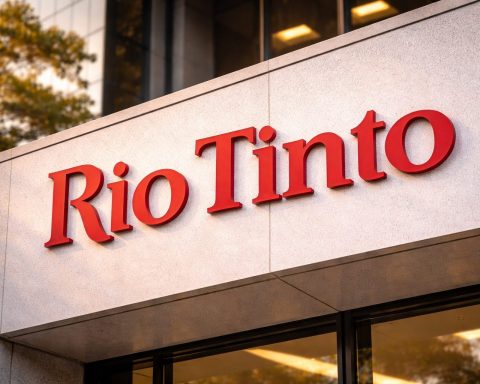Drug Approvals & Regulatory Developments
- FDA Greenlights New Lung Cancer Drug: The U.S. FDA approved Boehringer Ingelheim’s new lung cancer treatment Hernexeos for advanced non-squamous non-small cell lung cancer with a specific genetic mutation reuters.com. The approval, announced Aug 8, is based on trial data showing about 75% of previously treated patients saw their tumors disappear or shrink significantly reuters.com. The FDA simultaneously cleared a companion diagnostic test by Life Technologies to identify eligible patients reuters.com. Hernexeos, an oral kinase inhibitor, targets a mutation driving abnormal cell growth, though it carries warnings for liver, heart, lung side effects and risks to unborn children reuters.com.
- Gene Therapy Faces Safety Curbs: In a safety-driven move, the FDA restricted Bluebird Bio’s gene therapy Skysona (for cerebral adrenoleukodystrophy, a rare brain disease) to only patients lacking a matched stem-cell donor fiercepharma.com. Regulators determined Skysona should not be used in patients with alternative treatment options due to concerns of an increased risk of blood cancer fiercepharma.com. The one-time therapy uses a lentiviral vector, which is suspected of causing serious hematologic cancers (myelodysplastic syndrome and leukemia) in 15% (10 of 67) of treated patients, up from ~4% at approval fiercepharma.com fiercepharma.com. At least one patient has died from a cancer linked to the treatment. The FDA’s updated label (Aug 8) now warns that lifelong blood monitoring is required, as some cancers arose even before patients saw any benefit from the therapy fiercepharma.com.
- Rare Disease Drug Rejected Again:Stealth BioTherapeutics was dealt a blow as the FDA refused to reconsider its prior rejection of elamipretide, an investigational drug for ultra-rare Barth syndrome fiercebiotech.com. In a statement, Stealth noted FDA reviewers had “no safety concerns, no new efficacy data required on a pre-approval basis” and manufacturing issues were resolved fiercebiotech.com, yet the agency is still requiring a completely new application. This means a third NDA filing and likely >2 years review for a dataset of just 12 patients fiercebiotech.com. Stealth warned that “without more immediate action from the FDA, we cannot ensure continued drug availability to this vulnerable community or our sustainability as a company” fiercebiotech.com – underscoring how the delay imperils both patients and the company’s future.
- Saline Shortage Eases: On Aug 8, the FDA also announced that the United States’ year-long shortage of IV saline solutions is now resolved reuters.com reuters.com. Hospitals had been forced to postpone elective procedures in 2024 due to the shortage of IV fluids used for hydration and nutrition reuters.com. The crisis stemmed largely from Hurricane Helene damaging Baxter’s giant North Carolina production plant, which had supplied 60% of U.S. IV fluids reuters.com. Baxter has fully restored output and, with help from Fresenius and B. Braun boosting production, supply has stabilized reuters.com. The FDA said it will keep monitoring other IV fluid supplies still in shortage reuters.com.
(In Europe, regulators also made news: the EMA’s committee recommended approving darolutamide (Bayer’s Nubeqa) with hormone therapy for metastatic prostate cancer based on positive Phase 3 data onclive.com.)
Clinical Trials & Research Breakthroughs
- Cancer & Biology Breakthroughs: An avalanche of scientific advances was reported on Aug 8. Researchers at Memorial Sloan Kettering (MSK) unveiled multiple groundbreaking discoveries across cancer, genetics, and neurobiology. Notably, an MSK team showed how “jumping genes” (mobile DNA transposons) can drive cancer growth bioengineer.org. In a melanoma model, loss of a chromatin-folding protein (Nipped-B-like) let these transposons hijack nearby enhancers, inappropriately activating oncogenes and fueling tumors bioengineer.org. Another MSK study uncovered an unexpected oxygen-sensing pathway behind ferroptosis, a form of cell death. Under low oxygen (hypoxia), cells suppress the KDM6A enzyme – independent of HIF – which alters chromatin and lipid metabolism to resist ferroptotic cell death bioengineer.org. This finding suggests blocking an opposing enzyme (EZH2) could restore ferroptosis in KDM6A-mutant cancers bioengineer.org, hinting at new therapy strategies for cancer and neurodegeneration. MSK scientists also debuted “Proximity Copy-Paste” (PCP), a cutting-edge method to map 3D chromatin architecture at high resolution bioengineer.org. Using PCP in yeast, they observed how chromosome structures condense during mitosis via cohesin loops, and even identified stable overlapping nucleosomes – a previously under-appreciated feature of genome organization bioengineer.org.
- Neurology and Immunology Firsts: In neuroscience, a team led by Dr. Lorenz Studer created sophisticated 3D human brain organoids that model development of a specific neuron type implicated in schizophrenia bioengineer.org. These lab-grown “mini-brains” revealed multiple developmental defects in fast-spiking interneurons, mirroring abnormalities seen in schizophrenia patients bioengineer.org. The platform provides a powerful new way to study early brain development and test treatments for neuropsychiatric disorders bioengineer.org. And in immunology, MSK researchers discovered a key regulator of anti-viral immunity: Transcription Factor 19 (TCF19) was found essential for natural killer (NK) cells to mount responses against viral infections bioengineer.org. Mice lacking TCF19 had impaired NK cell expansion and calcium signaling during cytomegalovirus infection, blunting their antiviral defenses bioengineer.org. This insight into NK cell biology could inform next-generation immunotherapies for infections and cancer.
- Diabetes Heart Risk Predictor: Outside of MSK’s trove, a Swedish study published Aug 8 offers a novel way to stratify heart disease risk in type 2 diabetes. By tracking DNA methylation changes in blood samples of 752 newly diagnosed diabetics over 7 years, researchers identified an epigenetic signature that predicts who will stay heart-healthy reuters.com reuters.com. They pinpointed 87 DNA methylation sites whose combined score had a 96% accuracy in flagging patients at low risk of heart attack or stroke reuters.com. (It was less effective for high-risk identification, at ~32%, likely due to limited follow-up time reuters.com.) Lead author Charlotte Ling explained that DNA methylation “controls which genes are active or turned off… when it does not work properly, it can contribute to cardiovascular disease” reuters.com. Such a tool could help personalize treatment – intensifying therapy for high-risk diabetics while sparing low-risk patients unnecessary medications reuters.com.
- Maple Syrup vs. Tooth Decay: And in a sweet twist, scientists serendipitously found that a natural compound in maple tree syrup may fight cavities. The compound blocks bacteria from forming sticky biofilms on teeth, much like it prevents bacterial films on maple trees reuters.com. Interestingly, the molecule (identified as ECG) is also abundant in green and black tea, hinting at why tea drinkers have lower cavity rates reuters.com. This discovery (reported Aug 8) could lead to new alcohol-free oral care products to prevent tooth decay reuters.com.
Public Health & Policy
- Crisis in Sudan – Famine and Cholera: The World Health Organization (WHO) sounded alarms Aug 8 over a rapidly deteriorating humanitarian crisis in war-torn Sudan. After months of conflict, “hunger and disease are spreading” unchecked, the WHO said reuters.com. Famine conditions are already present in several areas, with 25 million people acutely food insecure reuters.com. A massive cholera outbreak has sickened nearly 100,000 people since mid-2024 reuters.com. “Relentless violence has pushed Sudan’s health system to the edge, adding to a crisis marked by hunger, illness and despair,” warned Ilham Nour, WHO’s Senior Emergency Officer reuters.com. Millions are displaced, and aid efforts are hampered by funding cuts and insecurity reuters.com. The WHO fears disease and malnutrition will claim countless lives if stability and assistance do not improve urgently.
- Kenya Beats Sleeping Sickness: In uplifting news, Kenya was officially validated by WHO on Aug 8 as having eliminated human African trypanosomiasis (HAT) – also known as sleeping sickness – as a public health problem who.int. Kenya becomes the 10th country to defeat this deadly parasitic disease transmitted by tsetse flies who.int. “I congratulate the government and people of Kenya on this landmark achievement,” said WHO Director-General Dr. Tedros Adhanom Ghebreyesus, praising it as “another step towards making Africa free of neglected tropical diseases” who.int. HAT (rhodesiense form) had plagued parts of East Africa, attacking the brain and proving fatal within weeks if untreated who.int. Kenya’s last native case was seen in 2009 who.int, thanks to decades of surveillance, tsetse control, and screening of at-risk communities who.int. Dr. Aden Duale, Kenya’s Health Minister, hailed the elimination as a victory that “will protect our people and pave the way for renewed economic growth,” crediting years of dedication, collaboration among government, researchers, partners and local communities who.int who.int.
- Global Regulators Get WHO’s Nod: In a bid to improve medicine regulation worldwide, WHO designated three new “WHO-Listed Authorities” (WLA) on Aug 9. The drug and vaccine regulatory agencies of Canada, Japan (MHLW/PMDA), and the UK (MHRA) achieved WLA status – meaning they meet the highest international quality standards pharmabiz.com. This brings the elite club of WLAs to 39 agencies globally pharmabiz.com. WLA recognition should “support faster and broader access to quality-assured medical products, particularly in low- and middle-income countries,” noted the WHO announcement pharmabiz.com. Dr. Tedros commended the newly listed agencies, saying “this recognition reflects their deep commitment to regulatory excellence” and is a “critical contribution to global public health… Strong and trusted regulators help ensure people everywhere have access to safe, effective, high-quality medical products” pharmabiz.com. The WLA program, launched in 2022 to replace an older “stringent regulatory authority” system, encourages regulatory convergence and reliance on trusted agencies’ decisions to help nations with weaker systems pharmabiz.com pharmabiz.com.
- CDC Tackles Teen Mental Health: Facing rising youth mental health struggles, the U.S. Centers for Disease Control and Prevention (CDC) rolled out a new awareness campaign on Aug 8 targeting teen substance use and mental health fiercepharma.com. Branded “Free Your Mind,” the initiative is aimed at adolescents aged 12–17 and the adults in their lives fiercepharma.com. It uses bright graphics and social media to provide coping tips, factual info about drugs, and conversation starters on sensitive issues fiercepharma.com. The CDC notes teen reports of persistent sadness and poor mental health are climbing, and youth who suffer depression or anxiety are more likely to misuse alcohol, opioids, cannabis, and other substances fiercepharma.com. “Teens may use alcohol and other substances to cope with stress, anxiety, and depression,” said Dr. Allison Arwady, Director of CDC’s Injury Prevention Center, emphasizing the need to talk openly. “Knowing when to get professional help is critical… This campaign supports youth, parents, and caregivers in having those conversations early, before an issue arises,” Arwady explained fiercepharma.com. The Free Your Mind campaign’s online hub also warns about counterfeit pills laced with fentanyl (“Beware of the fake & switch”) and encourages healthy ways to manage stress fiercepharma.com fiercepharma.com.
- U.S. Drug Policy Shifts: According to an Aug 9 Wall Street Journal report, President Donald Trump is considering reclassifying marijuana to a lower federal drug schedule to reflect it as “less dangerous” reuters.com. At a recent high-dollar fundraiser, Trump told donors he was interested in easing marijuana’s Schedule I status, which currently deems it among the most restricted, no-medical-use substances reuters.com reuters.com. Industry executives – including the CEO of a major cannabis company present – encouraged him to pursue the change and to support medical marijuana research reuters.com. Any such move would mark a significant shift in federal cannabis policy, potentially facilitating more research and easing banking and regulatory hurdles for the sector.
- Health Commission Delayed: Meanwhile, Trump’s domestic health initiative encountered a setback. A federal commission empaneled to tackle the U.S. “chronic disease epidemic” – dubbed the Make America Healthy Again (MAHA) commission – will miss its reporting deadline of Aug 12 reuters.com. The commission, chaired by HHS Secretary Robert F. Kennedy Jr., was created by executive order in Feb 2025 to recommend ways to reduce chronic illnesses in children and adults reuters.com. Its initial report in May controversially blamed processed foods, chemicals, stress, and “over-prescription of medications and vaccines” for rising rates of childhood obesity, diabetes, cancer, mental illness and even autism reuters.com. A follow-up report was due, but Bloomberg News reports the panel isn’t ready, citing internal discussions reuters.com. HHS did not comment on the delay reuters.com. The holdup raises questions about the commission’s efficacy; even Trump’s allies have complained the panel’s focus on vaccine skepticism and unorthodox theories may be undermining actionable progress (the May report’s claims drew scientific criticism).
- Pandemic Record Purge: In other U.S. policy news, the administration ordered federal agencies to delete employees’ COVID-19 vaccination records from personnel files yahoo.com. A new Office of Personnel Management (OPM) directive (issued Aug 8) gives agencies 90 days to expunge all records of federal workers’ vaccination status and any exemption requests, unless an employee opts to preserve their own record content.govdelivery.com yahoo.com. This move, reversing the prior administration’s policies, is framed as protecting privacy; however, it also symbolically underscores a shift away from COVID vaccine requirements in federal workplaces.
Industry & Business Updates
- Big Pharma Patent Truce – mRNA Edition: A high-profile vaccine patent war has reached a payday. Pfizer and BioNTech agreed to settle a lawsuit with CureVac over mRNA technology, ending one front of the COVID vaccine intellectual-property battles fiercepharma.com. Under the deal announced Aug 8, BioNTech will pay $370 million plus a 1% royalty on U.S. sales of its Pfizer-partnered COVID shot fiercepharma.com. GSK, which is CureVac’s mRNA partner, will pocket $320 million of that settlement upfront fiercepharma.com. (Notably, GSK had its own, separate mRNA patent claims against Pfizer/BioNTech; those remain unresolved fiercepharma.com.) This U.S. lawsuit stemmed from CureVac’s claims that Pfizer/BioNTech’s blockbuster vaccine Comirnaty infringed CureVac’s earlier mRNA patents. The settlement grants Pfizer/BioNTech a non-exclusive license to CureVac’s IP for current and future mRNA products fiercepharma.com – essentially buying peace, even as similar patent fights play out in other courts. The truce comes amid shifting alliances: in June BioNTech moved to acquire CureVac outright for $1.2 billion, which prompted GSK to intervene legally to ensure its interests were protected fiercepharma.com. For now, this costly détente closes one chapter of the post-COVID “vaccine wars.”
- M&A and Partnerships:10x Genomics, a leader in single-cell sequencing, announced it is acquiring Scale Biosciences, a startup specializing in single-cell sample prep and analysis tools fiercebiotech.com. The Aug 8 deal bolsters 10x’s tech portfolio for profiling individual cells’ genetic activity at scale. Elsewhere, Apreo Health – a biotech developing an implantable lung scaffold to regenerate tissue for emphysema patients – raised a hefty $130 million Series B financing fiercebiotech.com. The funding will accelerate Apreo’s bioengineered lung matrix into clinical testing as a novel treatment for COPD. In Asia, Bicycle Therapeutics disclosed it will lay off 25% of staff after pharma giant Genentech walked away from a partnership on one of its R&D programs. And Gilead Sciences made strategic R&D cuts – “culling” its last NASH (metabolic liver disease) drug candidate (developed with Novo Nordisk) and shutting down two oncology programs to refocus its pipeline. This came on the heels of Gilead’s earnings report showing a 7% drop in sales of its CAR-T cell therapies Yescarta and Tecartus, indicating challenges in its cell therapy franchise even as it pivots to other areas fiercepharma.com.
- Medtech IPO Soars: The IPO window showed a pulse as HeartFlow, a digital health/med-tech company, debuted on Nasdaq with resounding success. HeartFlow, which provides AI-powered cardiac imaging analysis, saw its stock surge 47% on its first day (Aug 8), giving the company a market value of about $2.27 billion reuters.com. Priced at $19, shares of HeartFlow opened at $28 and hit highs of $31.50 reuters.com. The California-based firm raised $317 million in the offering reuters.com, capitalizing on investor appetite for healthcare AI. “We saw a spike in volatility last week, but at the same time stocks are flying up on AI-driven earnings blowouts,” noted Matt Kennedy of Renaissance Capital, describing the “nervous excitement” in the IPO market reuters.com. HeartFlow’s strong debut – backed by Bain Capital – suggests investor optimism for tech-driven healthcare companies, amid broader hopes that easing trade tensions and interest rates will keep the market receptive reuters.com reuters.com.
- Pharma Commercial Updates: In the marketing realm, the week saw the CDC enlist two former NFL stars (Warrick Dunn and Deion Sanders) in a campaign to boost colorectal cancer screening, playfully named “Gear Up” – an effort to increase screening rates among reluctant groups (announced Aug 8) fiercepharma.com. Meanwhile, an unusual pharma-adjacent saga unfolded in China: A viral social media video of a Beijing pharmacist dancing to promote medications (“Pharmacy Dance Challenge”) sparked both amusement and regulatory ire – prompting authorities to issue new guidelines on pharmacy advertising (a lighthearted story trending on Aug 9). (While not a headline item, it reflects the eclectic mix of health news buzzing at week’s end.)
Sources: Key information and quotes in this report were drawn from Reuters news wires reuters.com reuters.com, official WHO releases who.int pharmabiz.com, and industry trade outlets including Fierce Biotech/Pharma fiercepharma.com fiercepharma.com and company statements. Each development is linked to its original source for further reading.









